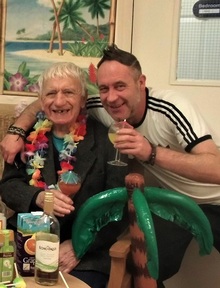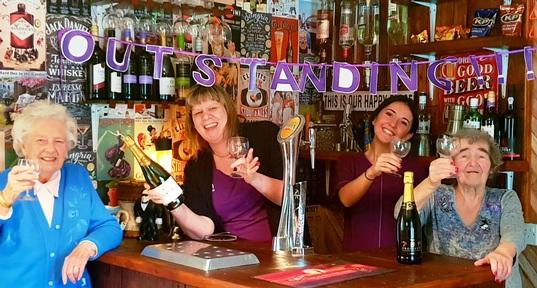PJ Care home helps trainee police officers "to acquire knowledge in dealing with people with neurological conditions"

Police have joined forces with a care home in a ground-breaking partnership to train officers how to treat people with dementia and other neurological conditions.
The innovative training programme comes in the wake of criticism of the police earlier this year when the Alzheimer’s Society called for more training for police and healthcare professionals, after a farmer with Alzheimer’s was shot with a Taser stun gun by police, during a struggle to section him under the Mental Health Act.
Sarah Moody, locality manager for the Alzheimer’s Society said at the time: “People with dementia can sometimes exhibit extreme agitation which can be difficult to understand and cope with for those who encounter it. “This unfortunate incident illustrates a lack of understanding in society of dementia and the best way to support and help people who are affected by this devastating condition.
"Alzheimer’s Society campaigns for more training both for health professionals and others who come into contact with people living with dementia on a regular basis, such as the police.”
In a bid to change things, trainee police officers from Thames Valley Police now spend time at PJ Care Bluebirds Neurological Care Centre in Milton Keynes owned by PJ Care, learning how to care for residents with dementia and other neurological conditions.
The training is a necessary part of their induction into the force.
The scheme is already underway at the care home where trainee officers spend two to three days in the home.
The officers get fully involved in care home life helping out with activities, meal times, orientation exercises and talking and listening to the residents and their relatives and friends.
They are fully supervised by a senior activities person and have already received induction training via the police force with all the relevant checks taken place before placement.
The officers do not wear their uniform in the home and instead wear comfortable casual clothes.
The care home has found that residents are not unsettled by the police officers being in the home as the majority of residents form bonds with people who take an interest in them and their lives.
Some residents due to their disease progression are distrustful and wary of strangers but the care team are aware of each individual and their personalised health action plans.
Mandy Ludlow, director of clinical development for PJ Care said: “We hope that by opening their eyes to the way these conditions can manifest themselves physically and mentally, it will help these officers in their everyday duties when they come across a situation with a person that may well be suffering from a mental illness or neurological condition.”
Thames Valley police have found that many officers have commented that if they receive a call from a PJ Care home when on the beat they are now better informed and more able to deal with the situation treating it as a priority.
Some of the officers had not encountered someone with a neurological impairment before and have changed their ideas about what this may mean to the individual, particularly when there is a genetic history.
All officers have reported the positivity of the experience and the changes they have put into their working practice. Some officers have continued to keep in touch and visit the homes following on from their initial stay.
Martin Elliott, community manager for Thames Valley Police said: “Dealing with people with dementia and other neurological conditions is specialised.
"We invest a great deal of time within our training programmes attempting to give our officers awareness of many of these issues. I am grateful to PJ Care for their investment and time in assisting with the placement programme, which practically allows our new police officers to acquire skills in dealing with people with some of these difficulties.
"This knowledge and experience can only be of benefit to these officers, the police service and the wider community of Milton Keynes.”
Latest Innovative Care News
 13-May-19
'Pink drink' brain cancer treatment rolled out across NHS in memory of Baroness Jowell
13-May-19
'Pink drink' brain cancer treatment rolled out across NHS in memory of Baroness Jowell
 25-Apr-19
Louis Tomlinson helps 83-year-old who lost wife to dementia complete bucket list
25-Apr-19
Louis Tomlinson helps 83-year-old who lost wife to dementia complete bucket list
 22-Mar-19
UK's top care home handyman takes residents to pub for pie and pint
22-Mar-19
UK's top care home handyman takes residents to pub for pie and pint
 12-Feb-19
Michael McIntyre's jokes tested to see if they stop elderly catching flu
12-Feb-19
Michael McIntyre's jokes tested to see if they stop elderly catching flu
 07-Jan-19
'We were lucky to find it': Family's delight as care home is rated Outstanding
07-Jan-19
'We were lucky to find it': Family's delight as care home is rated Outstanding